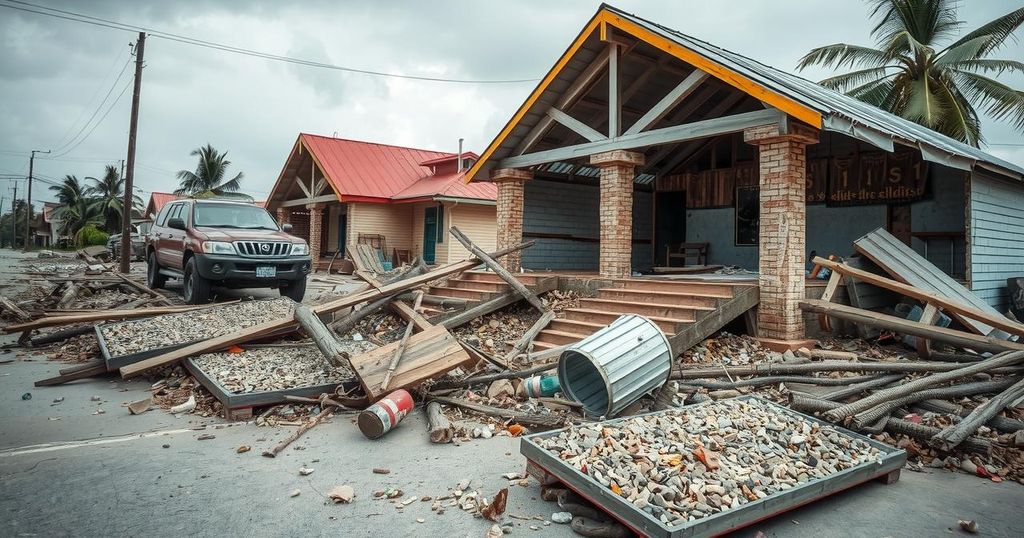Mozambique has raised its death toll from Tropical Cyclone Chido to 94. The cyclone caused extensive damage, particularly in Cabo Delgado, destroying over 110,000 homes and affecting 620,000 people. The toll in Mayotte remains uncertain amid fears of a rising death count, while Malawi reported 13 fatalities. Political unrest in Mozambique exacerbates the situation.
Mozambique has officially revised its death toll following the devastation caused by Tropical Cyclone Chido, now reported at 94 fatalities. The cyclone, which reached a category four intensity, inflicted significant damage across regions in the west Indian Ocean last week, particularly impacting the northern province of Cabo Delgado. Approximately 110,000 homes were destroyed in this region, with over 620,000 Mozambicans affected, the majority residing in Cabo Delgado. The cyclone also left a stark impact on the French territory of Mayotte, where authorities anticipate a considerable increase in the death toll, currently standing at 35, due to the presence of numerous undocumented migrants inhabiting the area.
The aftermath of Cyclone Chido has exacerbated an already tense situation in Mozambique, where political unrest following the recent elections has led to additional fatalities from protests against President Daniel Chapo’s controversial victory. This recent outbreak of violence has claimed at least 130 lives amid allegations of electoral fraud.
Despite its reduced intensity, Cyclone Chido’s impact extended to neighboring Malawi, resulting in 13 reported deaths and nearly 30 injuries. As responders continue to address the destruction, there is growing concern regarding the long-term implications of climate change, which experts state contributed to the cyclone’s intensity.
The destruction wrought by Cyclone Chido has highlighted the vulnerabilities of coastal nations like Mozambique, which face increasing threats from intense and unpredictable weather events intensified by climate change. The cyclone not only caused widespread destruction in Mozambique but also had severe implications for the nearby French territory of Mayotte, showcasing the interconnected nature of environmental crises. The socio-political context of Mozambique complicates recovery efforts, as the country grapples with civil unrest in the wake of contested elections, further straining its already limited resources and emergency response capabilities.
In conclusion, Mozambique’s recent revision of the death toll stemming from Cyclone Chido underscores the severe humanitarian impact of the storm. The cyclone’s destructive force has not only strained local resources but has also intensified existing political tensions. As recovery efforts unfold, the region remains on alert for future weather events and their potential consequences, necessitating a coordinated response to both immediate needs and long-term resilience against climate change.
Original Source: www.abc.net.au






